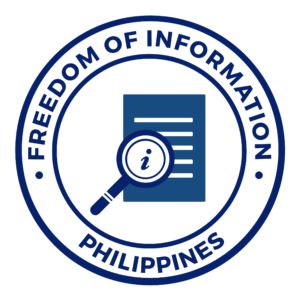What is the mandate of TPB?
The PTPB shall be responsible for marketing and promoting the Philippines domestically and internationally as a major global tourism destination, highlighting the uniqueness and assisting the development of its tourism products and services, with the end in view of increasing tourist arrivals and tourism investments; marketing the Philippines as a major Meetings, Incentives, Conventions and Exhibitions (MICE) destination; attracting, promoting, facilitating and servicing large scale events, international fairs and conventions, congresses, sports competitions, expositions and the like; ensuring the regular local and international advertisement of the country’s major tourism destinations and other tourism products, including TEZs; and providing incentives to travel agencies, tour operators, wholesalers and investors abroad capable of drawing a sizeable number of tourists and tourism investments to the country.
What is the composition of the Board of Directors?
The TPB shall be governed and its powers exercised by a Board of Directors (“Tourism Board”), composed as follows:
(a) The Department Secretary, as Chairperson;
(b) The TPB Chief Operating Officer, as Vice Chairperson;
(c) The TIEZA Chief Operating Officer;
(d) The DFA Secretary;
(e) The DTI Secretary;
(f ) The DOTC Secretary; and
(g) Five (5) representative directors, to be appointed by the President, upon the recommendation of the Tourism Congress from a list of at least three (3) nominees per group as enumerated in Section 49 of RA 9593. They must be Filipinos with recognized competence in business management, marketing, finance, tourism and other related fields and shall serve a term of office of three (3) years, which term may be extended for a period not exceeding three (3) years.
The Secretaries of the DFA, the DTI and the DOTC shall each designate a permanent representative in the Board, who must possess relevant experience.
The permanent representative shall be duly authorized to act on behalf of the Secretary in his or her absence.
The Chairperson of the Tourism Board shall have voting rights in case of a tie.
The Tourism Board shall appoint a corporate secretary whose functions shall include the preparation of agenda for board meetings, in consultation with the Chairperson.
Who heads the TPB?
The TPB shall have a Chief Operating Officer who must be a Filipino, with a bachelor’s degree in any of the following fields: business, law, tourism, public administration or other relevant fields and have demonstrated expertise therein. He or she must have been engaged in a managerial capacity for at least five (5) years prior to his appointment. He or she shall be elected by the Board from a list of qualified applicants and appointed by the Secretary, and shall have a term of office of six (6) years, unless removed for cause in accordance with law.
How does a representative director get elected?
In accordance with Section 47, paragraph (g) of RA 9593, the Tourism Congress as created under Chapter VIII, Section 104 shall elect from among its members the directors to represent the tourism industry in the Tourism Board, specifically the following groups:
(a) Accommodation enterprises;
(b) Travel and tour services;
(c) Land, air and sea tourist transport services;
(d) Conventions and exhibitions services and suppliers; and
(e) Other tourism enterprises.
If a representative director ceases to be connected with the sector he or she represents, a new representative director shall be appointed to serve the unexpired term.
What are the powers and functions of TPB?
The TPB shall have all the general powers of a corporation provided under the Corporation Code. Furthermore, it shall have the following powers and functions:
(a) Organize the TPB in a manner most efficient and economical for the conduct of its business and the implementation of its mandate;
(b) Develop and implement a plan to market the Philippines as a premier tourist destination;
(c) Direct and coordinate the resources and efforts of the government and the private sector in the tourism and allied fields for the full realization of the tourism plans and programs;
(d) Develop and promote the Philippines as a center for international meetings, incentives, conventions, exhibitions, sports, medical tourism, and other special events;
(e) Engage in the business of tourism and perform acts in consonance therewith, such as, but not limited to, attending conventions and other events abroad in representation of the country, encouraging sales promotions and advertising, and implementing programs and projects with the objective of promoting the country and enticing tourists to visit its tourism destinations and to enjoy its tourism products;
(f) Contract loans, indebtedness and credit, and issue commercial papers and bonds, in any local or convertible foreign currency from international financial institutions, foreign government entities, and local or foreign private commercial banks or similar institutions under terms and conditions prescribed by law, rules and regulations;
(g) Execute any deed of guarantee, mortgage, pledge, trust or assignment of any property for the purpose of financing the programs and projects deemed vital for the early attainment of its goals and objectives, subject to the provisions of the Constitution (Article VII, Section 20, and Article XII, Section 2, paragraphs (4) and (5));
(h) Receive donations, grants, bequests and assistance of all kinds from local and foreign governments and private sectors and utilize the same;
(i) Extend loans through government banks and financial institutions, provide grants and other forms of financial assistance for manpower training, heritage preservation, infrastructure development, and other programs of the Department;
(j) Obtain the services of local and foreign consultants, and enter into contracts locally and abroad in the performance of its functions; and
(k) Perform all other powers and functions of a corporation.









